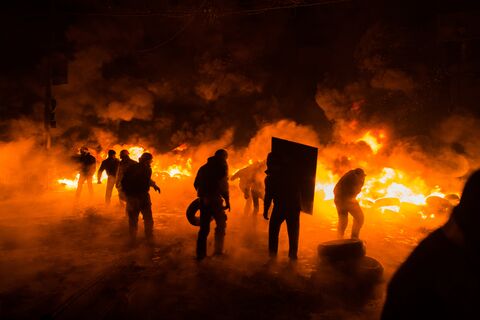How SOPA, #Occupy, Arab Spring and.... LOLCats reshaped the public sphere - Part 1
Note: This is the first of a two-part post.
It has been a year of remarkable protests. Beginning with the Arab Spring in 2011, then the Occupy movement across the world and now the protests against SOPA (Stop Online Piracy Act), we have seen the masses revolting against and protesting to the ruling elite in order to achieve change.
All of these movements have enjoyed some success – how much credit does social media deserve for enabling social change?
Background
In January 2011, two of the Arab world’s long standing dictators — Zine El Abidine Ben Ali, President of Tunisia for 24 years, and Hosni Mubarak, President of Egypt for 30 years — were toppled from power within weeks of each other.
The departure of both leaders was triggered by initially small-scale civil protests which grew and spread to other parts of the country. Civil protests are not a new phenomenon in either country — both dictators are well versed in quashing civil unrest through brute force and media blackouts — so why were these protests successful in triggering the departures of dictators of both countries where so many failed before?
On the other hand, Occupy Wall Street was started by the Canadian publication Adbusters, in an attempt to challenge Wall Street, vowing to end the “financial corruption of democracy”. They coined the term ‘The 99%’, representing the majority of the population who are suffering as a result of the financial irresponsibility of the elite 1% of the population. The movement has subsequently spread to many cities. Why was the Occupy movement so successful in spreading to other parts of the world?
A few weeks ago – on the 18th January 2012 – Wikipedia, reddit, the hugely popular cheezeburger network (famous for lolcats) and a number of other popular websites “blacked out” their websites in protest against the bill. So many people have now shown their opposition to the bill that it has been dropped from Congress. The bill was originally introduced in October 2011 and since then very influential figures and companies have spoken out against it – why was it only recently that the bill’s been dropped?
Role of social media
There are arguments opposing and proposing the notion that social media instigated and even accelerated the process of achieving social change.
Proponents argue that during the Arab Spring, social media “tools did speed up the process by helping to organize the revolutionaries, transmit their message to the world and galvanize international support.” “This revolution started on Facebook,” claimed Wael Ghonim, author of one of the first Facebook pages in favour of the Egyptian revolution, in a broadcast an interview on CNN, overlooking the fact that the Arab Spring revolution started in Tunisia.
Opponents such as Malcolm Gladwell argue that social media cannot and will not instigate social change because the “platforms of social media are built around weak ties” and that those who take part in high-risk activities, such as revolutions, do so because they are compelled by a close friend or a family member – not just anyone from Facebook.
Fundamentally however neither side can prove their claims, there is simply no data available to indicate how much action has been generated a result of activists organising themselves on social networks? Although hopefully we will have some solid data/insight relating to SOPA.
But there is one aspect of these protests that has been overlooked by many....
To be continued.
We're a creative agency in London and Singapore. We help our clients break through the noise. We'd love to hear from you so do drop us a line
